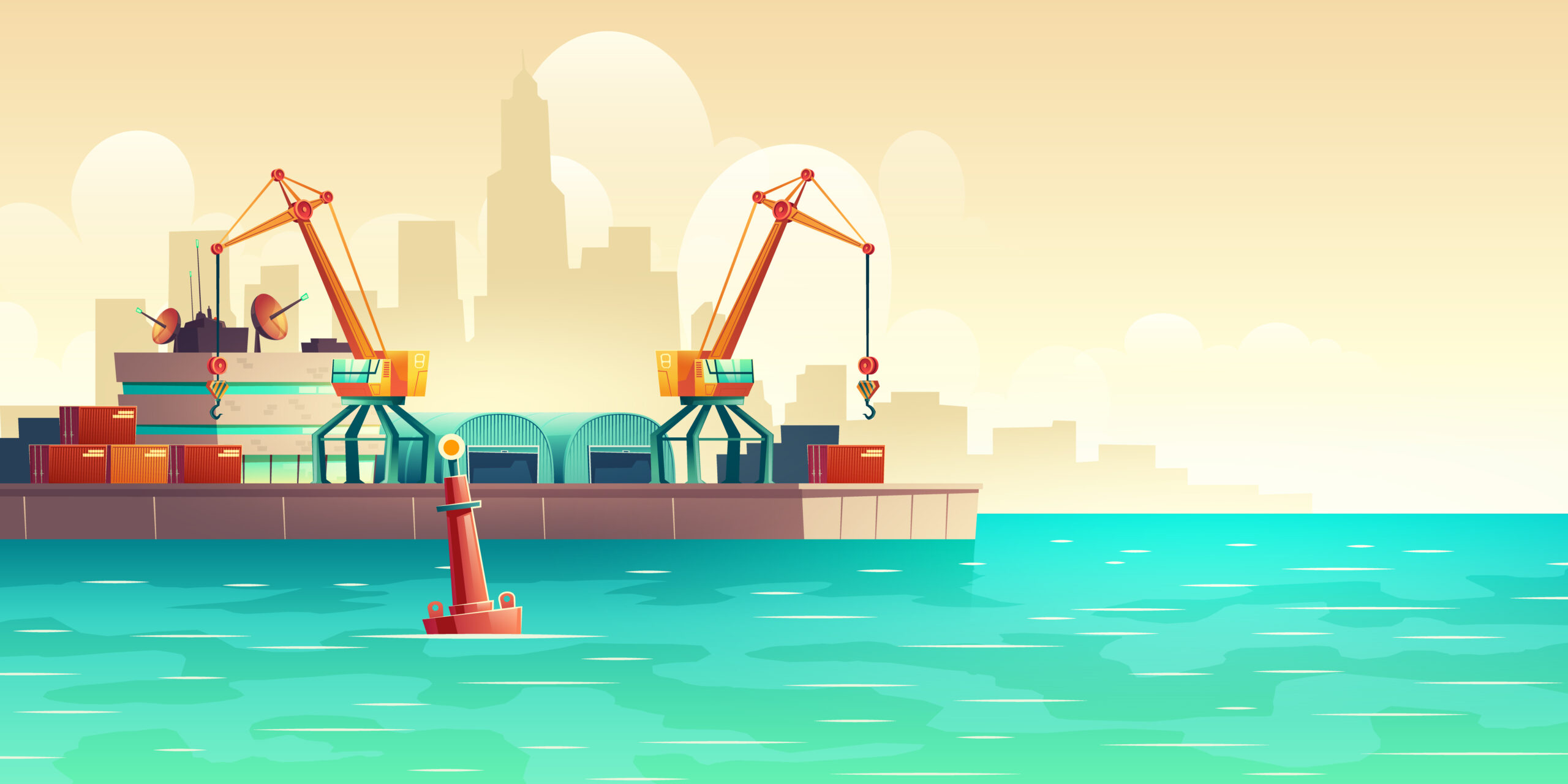The Gulf Cooperation Council (GCC) ports are rapidly gaining prominence in the global maritime landscape. In a remarkable achievement for 2024, 10 container terminals across the GCC member states have secured positions among the top 70 most efficient terminals worldwide, as per newly released global rankings. This accomplishment highlights the operational excellence of these ports and underscores the Gulf region’s strategic importance in facilitating international trade.
Global Recognition for Gulf Ports
Ten of the GCC’s 405 container terminals have proven to be among the most effective in the world. This accomplishment reflects years of strategic investment in port infrastructure and operational enhancements.
According to data from the GCC Statistics Center, the rankings highlight the Gulf region’s expanding role in global trade, with ports in Saudi Arabia, the UAE, Oman, and Qatar standing out for their efficiency and throughput.
Dominance in Maritime Fleet Strength
Saudi Arabia, the United Arab Emirates, Oman, and Qatar are among the top 35 nations in terms of the size of their marine fleets, per the 2024 report of the United Nations Conference on Trade and Development.
Notably, the GCC’s commercial fleets now represent 54.2% of the total Arab shipping fleet, reinforcing the region’s status as a maritime heavyweight.
The report highlights:
- With a combined yearly volume of over 4 million containers, the two ports in the GCC are among the best in the world.
- Eight other ports, with yearly container throughputs ranging from 500,000 to 4 million containers, are categorized as middle performers.
This achievement underscores the significant investments made by GCC nations in port infrastructure, logistics capabilities, and digital innovation.
Country-Specific Developments
Saudi Arabia: Vision 2030 in Action
Saudi Arabia is on a mission to transform itself into a global logistics hub through Vision 2030 and the National Industrial Development and Logistics Program. Key initiatives include:
- SR640 million ($170.5 million) expansion of Jeddah Islamic Port to handle mega ships (up to 24,000 TEUs).
- Over SR7 billion was allocated to upgrade King Abdulaziz Port in Dammam, boosting infrastructure and operations.
Oman: Leveraging Strategic Location
Oman is strategically using its geographic advantage to strengthen its maritime presence. The country is investing heavily in:
- Advanced port technologies
- Logistics integration
- Streamlined operational systems
Oman is becoming a key international maritime gateway as a result of these actions.
United Arab Emirates: Leading the Maritime Sector
The United Arab Emirates continues to lead the Gulf’s marine development:
- 2. Dubai’s Jebel Ali Port is the world’s ninth-largest cargo port.
- DP World, headquartered in the UAE, manages 181 terminals across 64 countries, making it one of the largest port operators globally.
Qatar: Ports Driving Diversification
Qatar is using port development as a tool for economic diversification. The government has launched:
- Incentives such as reduced service fees
- Investment-friendly policies to attract global partners
- Plans to integrate Qatari ports into international trading systems
Focus on Sustainability and Security
The Gulf’s dedication to sustainable port development was highlighted by GCC-Stat, guaranteeing long-term expansion in line with international environmental objectives.. Additionally, the ports play a strategic role in maintaining regional security and supply chain stability.
The Future: Gulf Ports as Global Trade Hubs
With over 25 major seaports strategically located along the Arabian Gulf and the Red Sea, the Gulf Cooperation Council (GCC) has cemented its position as a vital hub in the global maritime trade network. These ports serve as gateways not only for oil and gas exports but also for a growing volume of diversified cargo, making them critical links in international supply chains.
In recent years, the GCC nations, including the UAE, Saudi Arabia, Qatar, Kuwait, Bahrain, and Oman, have collectively invested billions of dollars into port infrastructure, technological innovation, and logistics capabilities. These investments reflect a long-term vision to transform the region from a transit point into a full-fledged logistics powerhouse.
This Article is adapted from Arab News.
We’re committed to providing the best logistics management software experience for users. Stay tuned for more updates and enhancements in future releases
Remember, our team is here to support you throughout the trial period.
Feel free to reach out if you have any questions or need assistance.
That’s All. For more information, mail us at info@lcsbridge.com. Follow us on Twitter, LinkedIn, Instagram, Facebook
Bridge LCS Video Tutorial

